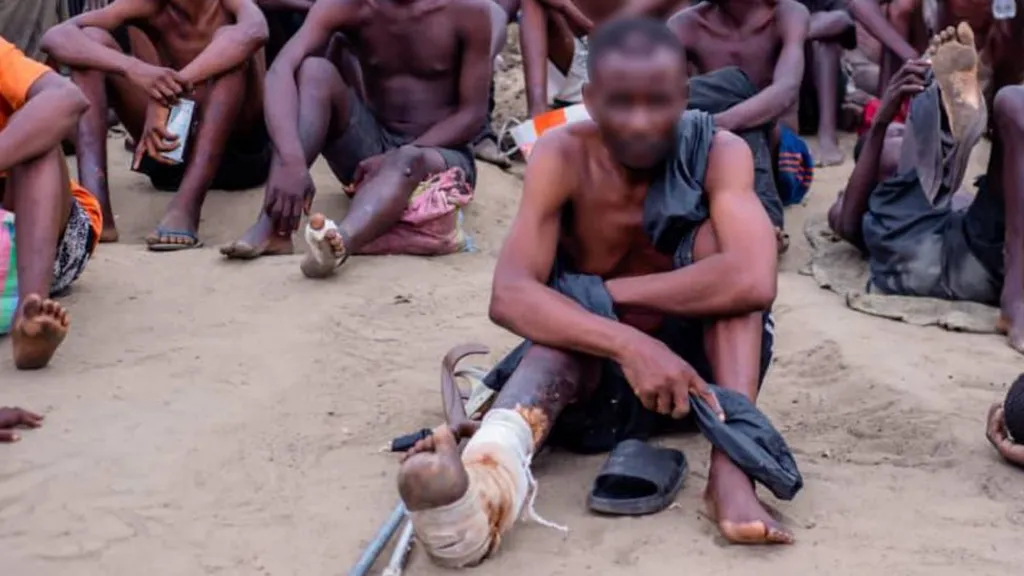Major Prison Reforms in DR Congo: Release of Seriously Ill Inmates
3 min read

In a significant move to address overcrowding, authorities in the Democratic Republic of Congo (DRC) have released 1,685 “seriously ill” inmates from Makala Prison, one of the country’s most notorious facilities. The release, which began on a recent Sunday, aims to alleviate the dire conditions within the prison, often described as “true hell.”
Makala Prison, located in the capital city of Kinshasa, has faced intense scrutiny following a tragic incident earlier this month, where 129 prisoners lost their lives during a botched jailbreak attempt. Reports indicate that some inmates were shot by security forces, while others perished in a deadly crush. In light of these events, the government has committed to accelerating its efforts to decongest the facility.
The images released by the justice ministry highlight the dire state of many inmates. One photograph depicts a severely malnourished man, bandaged and being transported in a wheelbarrow. Another shows a group of emaciated men, with one suffering from an open wound. These images serve as a stark reminder of the inhumane conditions that have plagued the prison.
Justice Minister Constant Mutamba, who has been proactive in addressing these issues, announced that those requiring medical treatment would receive care, while others would be transported home on government-provided buses. In his statements, he expressed hope for the future, with one released inmate declaring a desire to change his life and avoid causing pain to others.
Mutamba had previously initiated the release of hundreds of inmates from Makala in an effort to reduce the prison population. He has also imposed a ban on the transfer of new inmates to the facility. Kinshasa, home to a population exceeding 14 million, currently has only two jails: Makala and the military prison of N’dole, which has an official capacity of just 500.
The local NGO Bill Clinton Foundation for Peace, led by Emmanuel Adu Cole, praised the government’s actions but emphasized the need for further reforms. The prison, built in the 1950s, was designed to hold 1,500 inmates but has, at times, housed upwards of 12,000 individuals, leading to horrific conditions.
A former inmate, Stanis Bujakera, described the facility as resembling a concentration camp rather than a prison. He revealed that videos he secretly filmed depicted the overcrowding and insufficient daily rations. Conditions inside Makala have long been acknowledged by officials, with some attributing the issue to the judiciary, which sends many suspects to prison. An alarming statistic from 2020 indicated that only 6% of the inmates were serving sentences, with the majority stuck in a legal limbo that can last for years.
The DRC’s overcrowding crisis is emblematic of broader systemic issues within its justice system. As the government takes steps to address these pressing concerns, the release of sick inmates marks a critical, albeit insufficient, effort to improve conditions. The challenge remains for authorities to implement comprehensive reforms that not only alleviate overcrowding but also ensure fair treatment and proper legal processes for all detainees.
As the situation develops, the world will be watching to see whether these measures lead to lasting change in the DRC’s prison system. The health and safety of inmates depend not just on their release but also on the overall transformation of a system that has long been plagued by neglect and abuse.